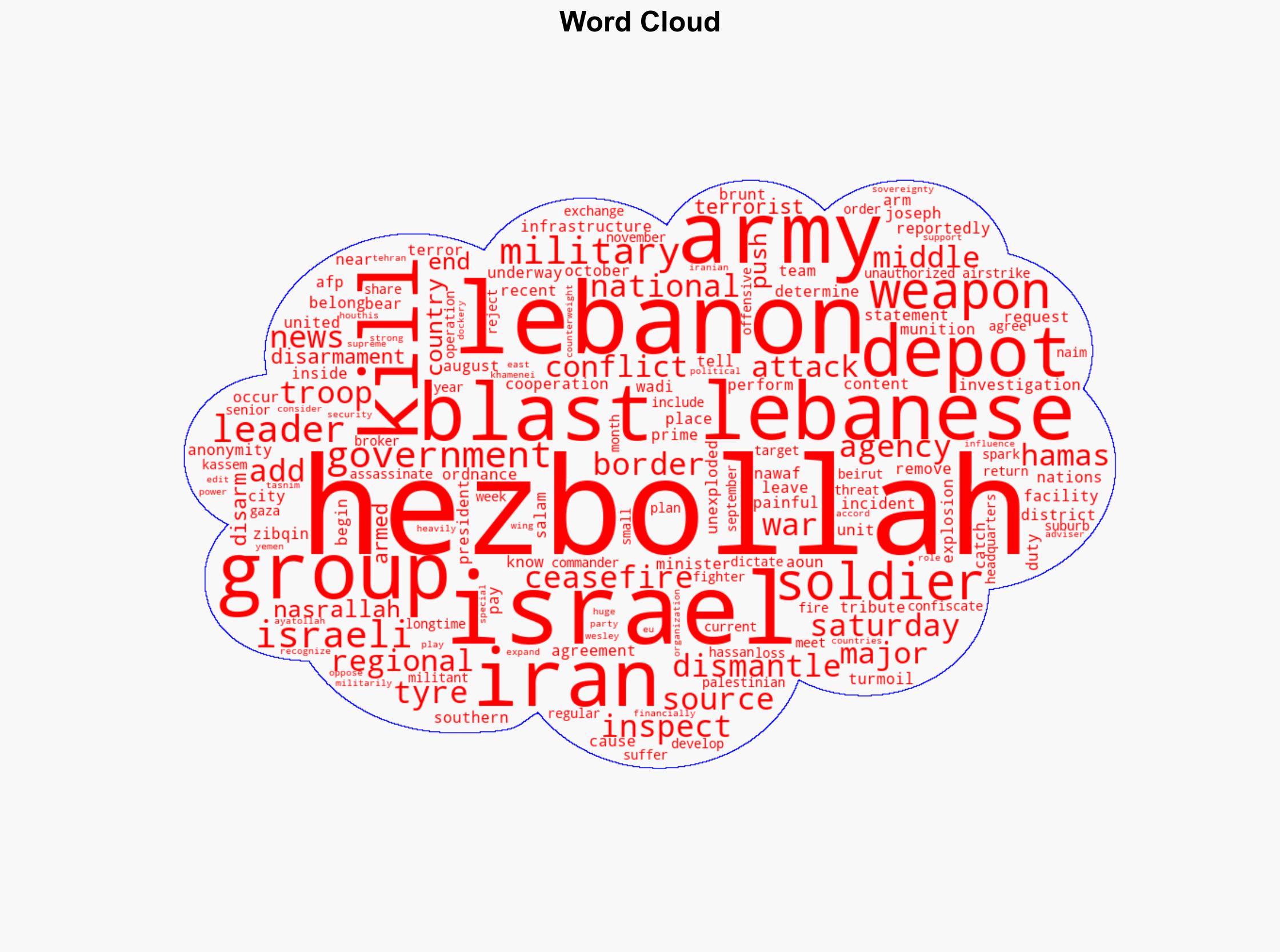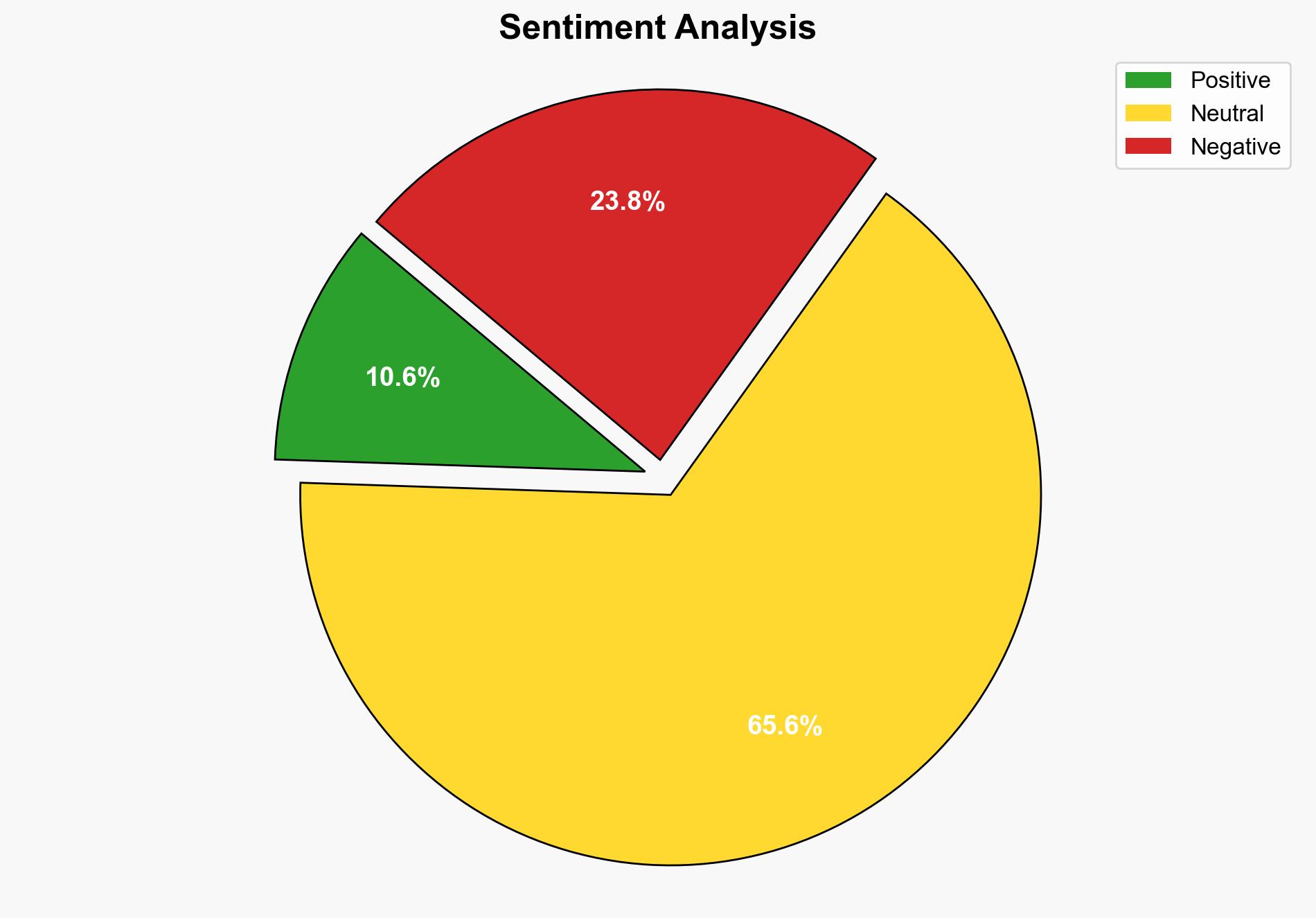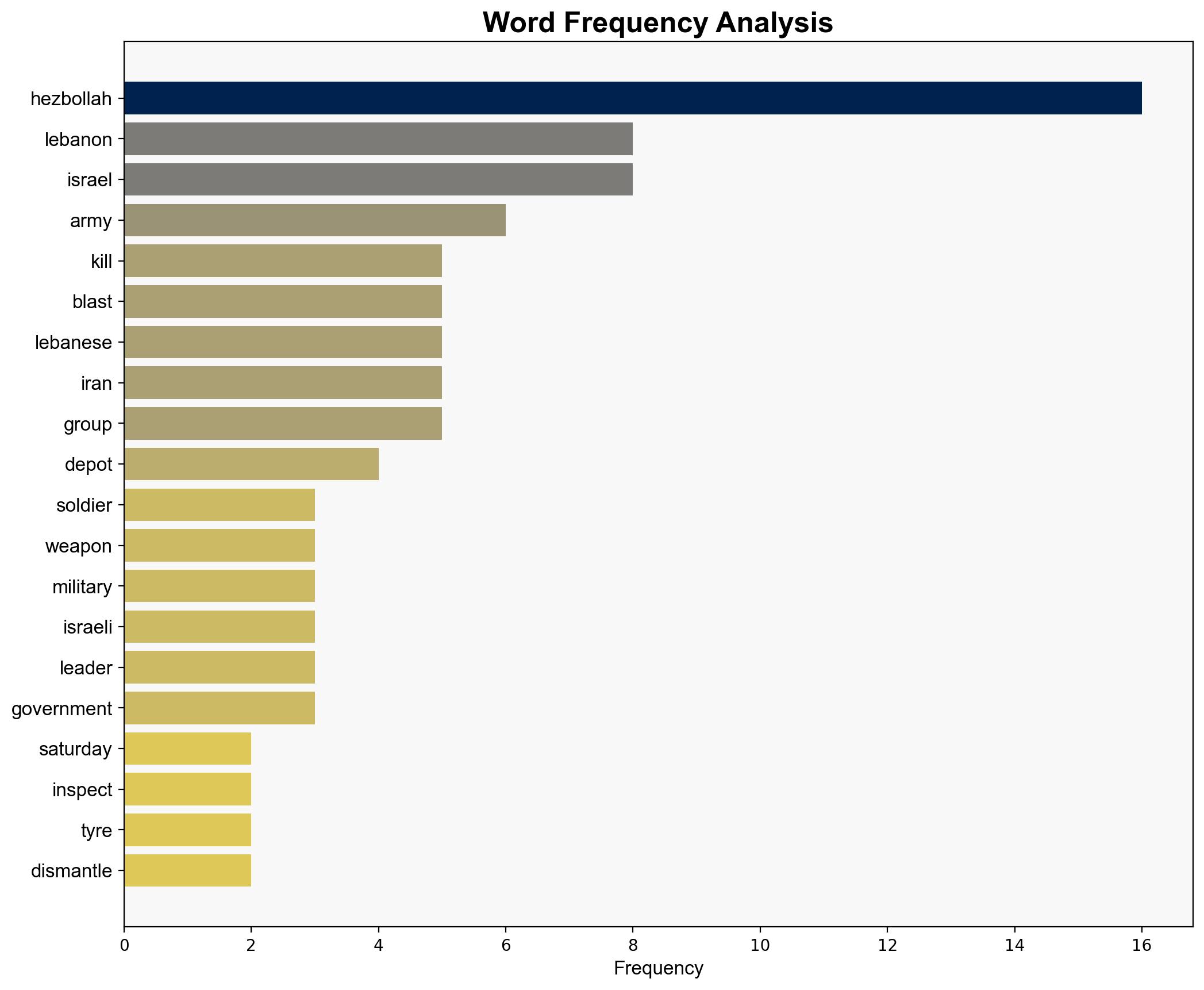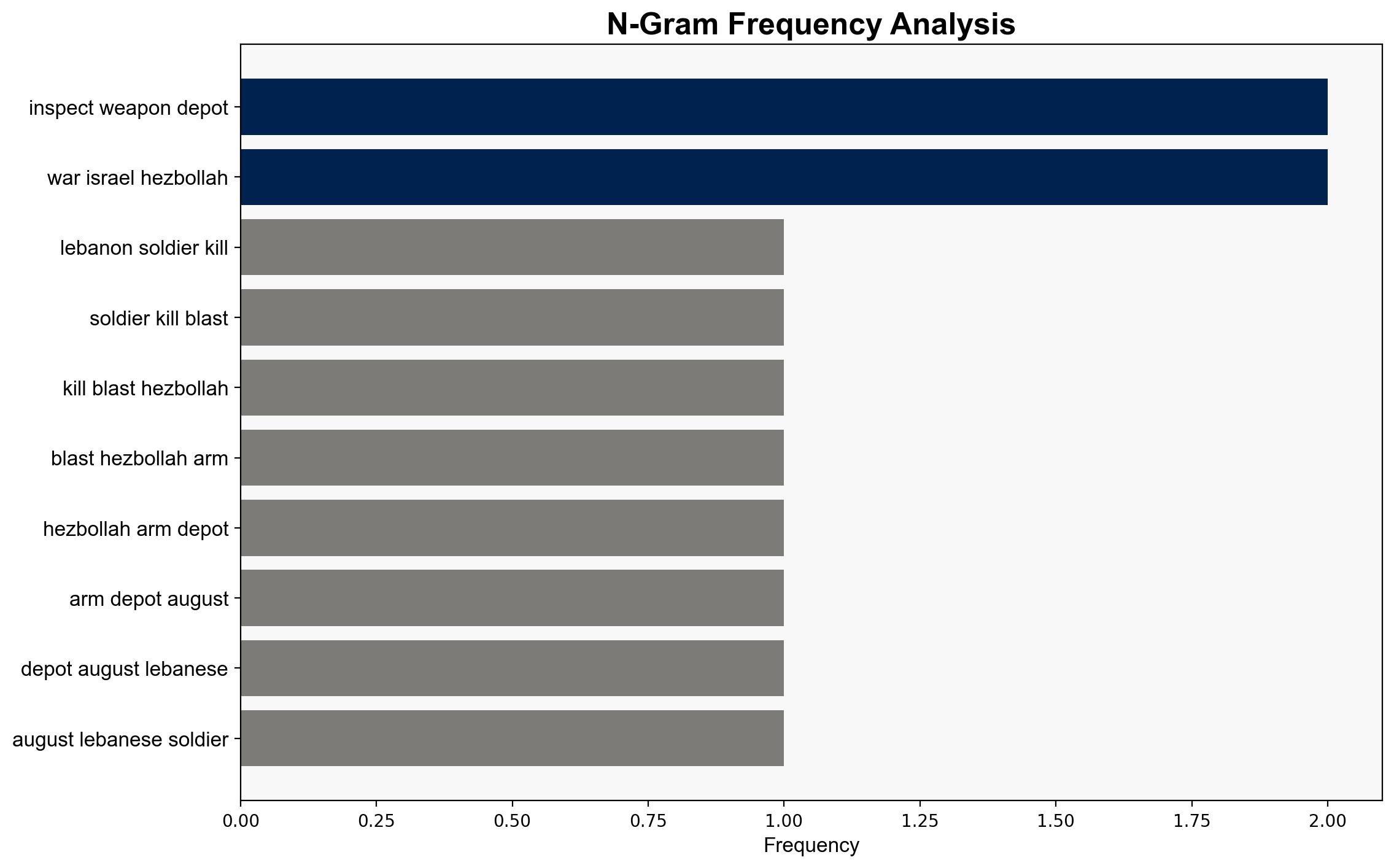Lebanon 6 soldiers killed in blast at Hezbollah arms depot – DW (English)
Published on: 2025-08-09
Intelligence Report: Lebanon 6 soldiers killed in blast at Hezbollah arms depot – DW (English)
1. BLUF (Bottom Line Up Front)
The most supported hypothesis is that the explosion was an accidental detonation of munitions within a Hezbollah arms depot, exacerbated by the presence of unexploded ordnance from previous conflicts. Confidence in this hypothesis is moderate due to the lack of conclusive evidence and ongoing investigations. Recommended action includes increased international monitoring and support for disarmament efforts to prevent future incidents.
2. Competing Hypotheses
1. **Accidental Detonation Hypothesis**: The explosion was caused by an accidental detonation of munitions, possibly triggered by mishandling or unstable ordnance left over from previous conflicts with Israel.
2. **Deliberate Attack Hypothesis**: The explosion was the result of a deliberate attack by an external actor, potentially Israel, aiming to weaken Hezbollah’s military capabilities and influence in the region.
Using Analysis of Competing Hypotheses (ACH), the accidental detonation hypothesis is better supported by the available data, including the presence of unexploded ordnance and the lack of immediate claims of responsibility for an attack.
3. Key Assumptions and Red Flags
– **Assumptions**: The accidental detonation hypothesis assumes Hezbollah’s arms depots are poorly managed and contain unstable munitions. The deliberate attack hypothesis assumes external actors have the capability and intent to covertly target Hezbollah facilities.
– **Red Flags**: Lack of transparency in Hezbollah’s operations and the Lebanese government’s limited control over Hezbollah’s military infrastructure. The anonymity of military sources raises questions about the reliability of the information provided.
– **Blind Spots**: Potential underestimation of Hezbollah’s internal security measures and the possibility of internal sabotage or dissent within Hezbollah.
4. Implications and Strategic Risks
The incident highlights the ongoing volatility in the Lebanon-Israel border region and the risks associated with Hezbollah’s military presence. Potential escalation could arise if the incident is perceived as an attack, leading to retaliatory actions. The situation could further destabilize Lebanon, already strained by economic and political challenges, and impact regional security dynamics.
5. Recommendations and Outlook
- Enhance international monitoring of arms depots in Lebanon through UN cooperation to prevent similar incidents.
- Support diplomatic efforts to advance disarmament talks with Hezbollah, leveraging regional and international stakeholders.
- Scenario Projections:
- **Best Case**: Successful disarmament reduces the risk of future incidents and stabilizes the region.
- **Worst Case**: Misinterpretation of the incident as an attack leads to military escalation between Hezbollah and Israel.
- **Most Likely**: Continued tension with sporadic incidents, maintaining the status quo of regional instability.
6. Key Individuals and Entities
– Joseph Aoun
– Nawaf Salam
– Naim Kassem
– Hassan Nasrallah (deceased)
– Ayatollah Khamenei
7. Thematic Tags
national security threats, regional focus, counter-terrorism, geopolitical stability





